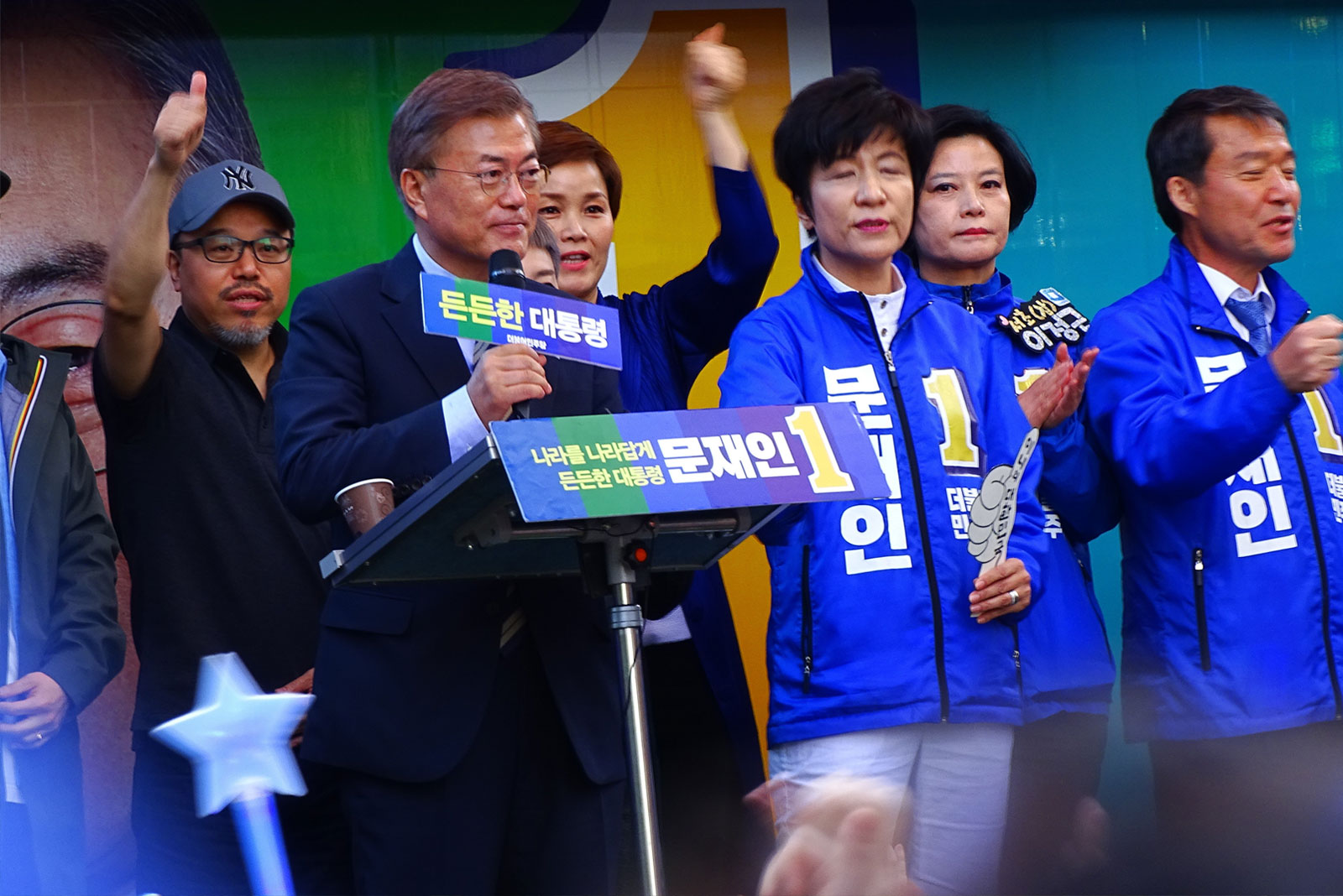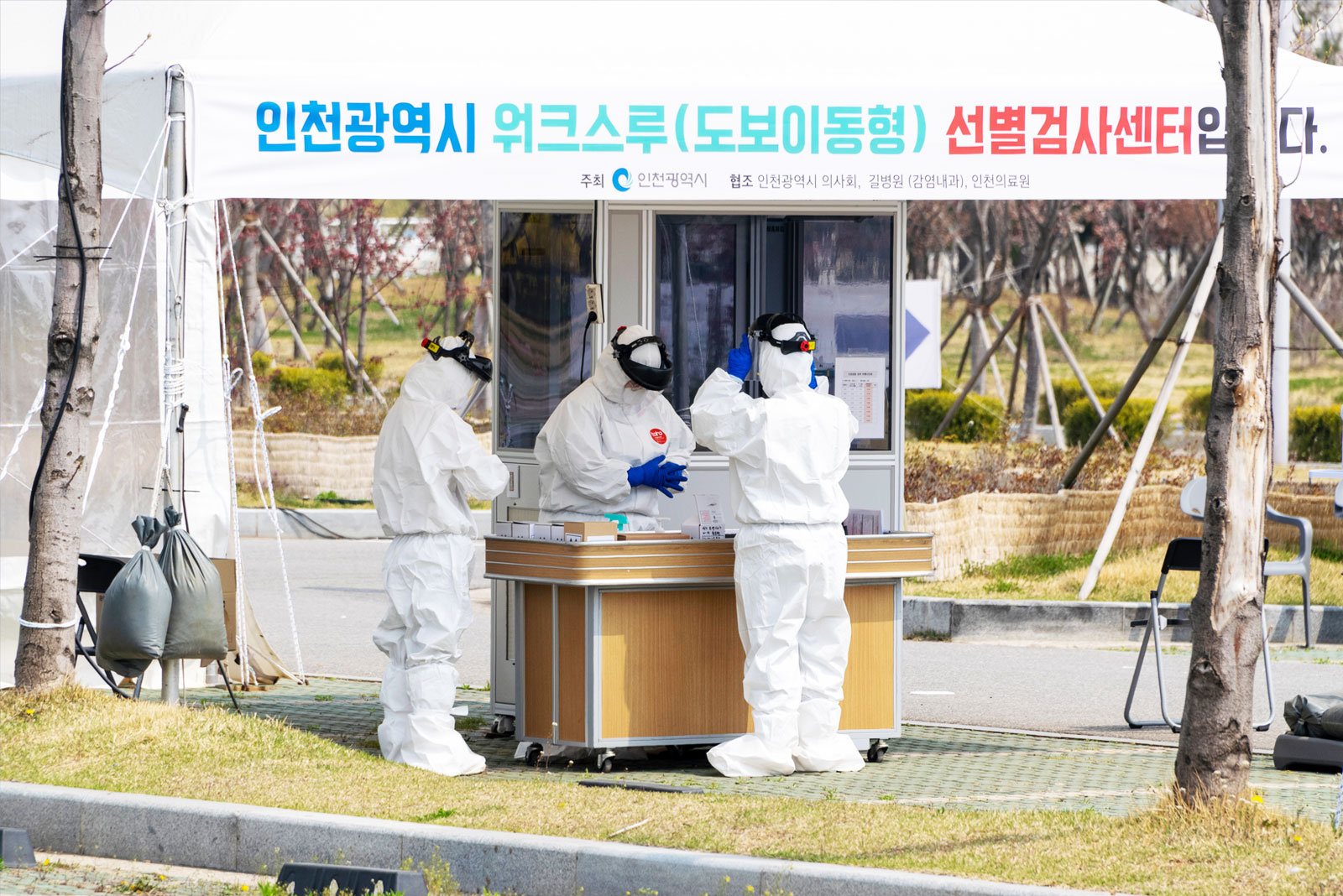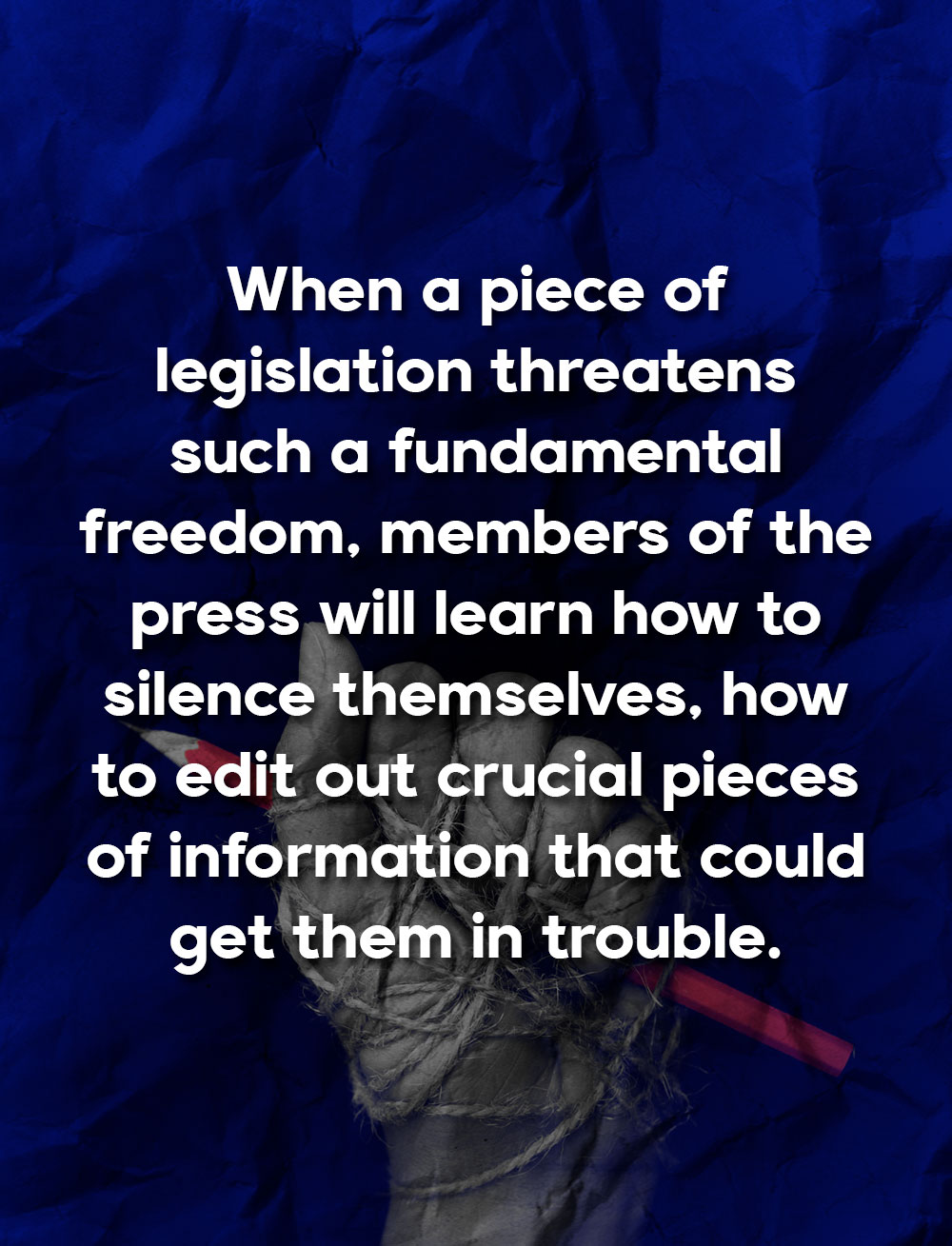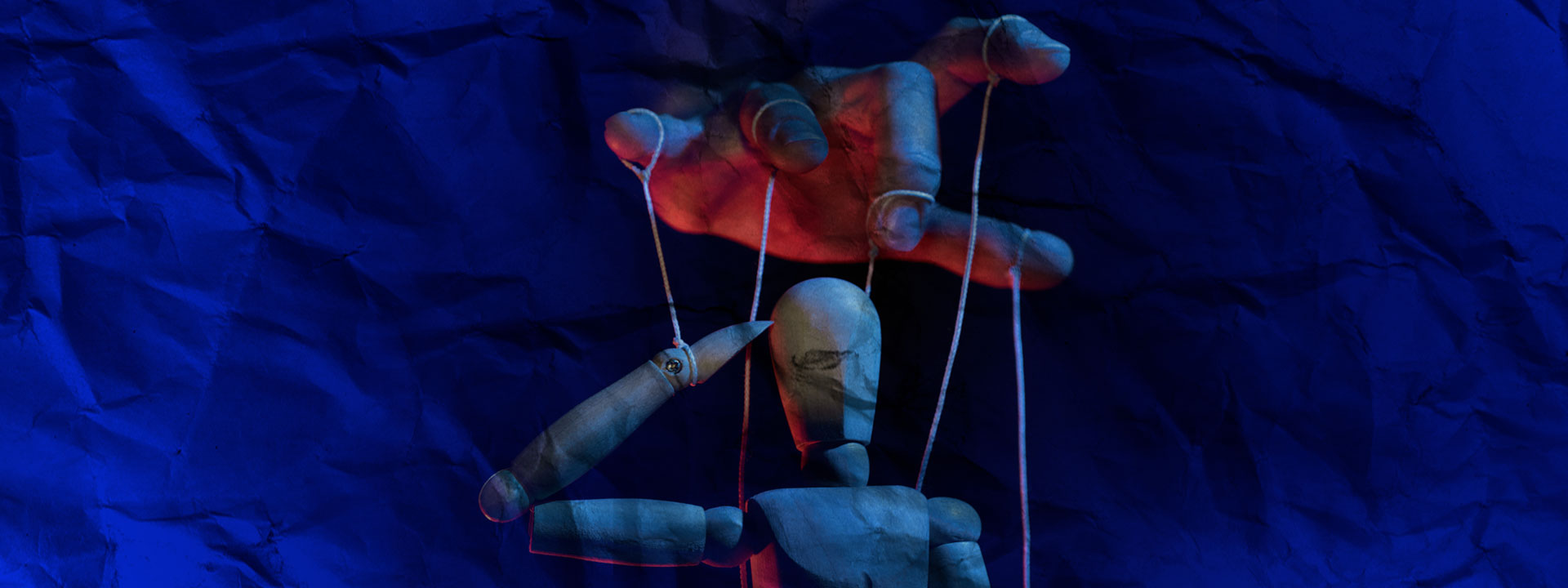When the sun set on South Korea on October 29, 2016, the streets of Seoul refused to grow dark. At around 6 p.m., thousands of people — of all ages, from all walks of life, alone or in groups, and each with a lit candle in hand — flocked to the Cheonggye Square, at the heart of the country’s capital, to decry high-level government corruption.
Just a few days before the protest, it had come to light that then-president Park Geun-hye had given a close friend access to confidential state information, which led to several extortion schemes, lopsided business deals, and other instances of gross abuse of power. The people were enraged and they wanted Park out.
The flames from that first protest in October would spread across the country and their numbers ballooned from thousands to millions, with crowds forming all throughout the nation. The protest went on for months, ending only in March 2017, when Park was finally impeached.
The people were tired but triumphant, and when President Moon Jae-in won South Korea’s presidential seat a couple of months later, in May, many saw it as a restoration of democracy, equality, transparency, clean and honest governance, and fairness.
But today, four years and a pandemic later, the cracks in the Moon administration have shown themselves, revealing much of the same troubling, conservative, incompetent, power-hungry tendencies that have hounded South Korea’s past governments.
On August 25, 2021, Moon’s Democratic Party took advantage of its parliamentary supermajority to push a bill introducing amendments to the country’s Press Arbitration Act, which critics say would give the government broad powers to restrict the freedom of the press.
The revised bill proposes penalties up to five times larger than what is currently levied against media companies deemed to have published false information, whether intentionally or not. Courts are supposed to decide on a publisher’s responsibility, but the amendments provide no clear definition of what constitutes false information.
The bill also indicates that the penalty cost will be calculated based on the media outlet’s social influence and total sales. Not only does this give broad powers to the government to restrict the freedom of the press, it also seeks to silence media actors, discouraging them from reporting for fear of being penalized.

President Moon Jae-in rose to power on a platform of democracy, clean and honest governance, and equality, giving hope to many of South Korea’s youth. But today, his administration is hounded by allegations of fraud, sexual assault, and gross incompetence.
A strong reputation, a troubled history
Like many countries across the globe, South Korea is faced with the emergent and urgent problem of fake news and disinformation.
The political realm, in particular, has been made especially fraught by the wave of rumors and conspiracy theories spread by many right-wing channels on the video streaming platform YouTube and on anonymous online fora, all of which serve to sway public opinion.
Many of these falsehoods invoke the ghost of Park’s 2017 impeachment, claiming that she was framed, her impeachment was staged by the Democratic Party, and that the elections were stolen from the common folk.
To compound the problem, many of the dominant media companies in South Korea, such as JoongAng, Dong-A, and the Chosun Dailies, find their provenance under authoritarian rule in the country and rose to prominence under these conditions. For its proponents, the amendments to the Press Arbitration Act anchor their case in this married crisis of corporate control and conservativeness in the media.
The proposed bill is hardly the first time that the media was threatened in South Korea. Despite the country’s strong reputation for press freedom (it ranked 41st in the 2021 World Press Freedom Index, higher than both the US and Taiwan), attacks against the sector are nothing new.
Perhaps the most infamous in recent memory was in April 2009, under then-president Lee Myung-bak’s administration. For reporting critical government policy, four media staffers from the Munhwa Broadcasting Corporation were arrested and charged with spreading false rumors regarding the import of beef into the country.
After she succeeded him, Park continued Lee’s tradition of press censorship in South Korea. Following the tragic sinking of MV Sewol in 2014, Japanese journalist Tatsuya Kato was indicted for writing a defamatory article about the president’s whereabouts during the disaster. During the series of protests leading up to her impeachment, Park further tightened the muzzle on the media.
But what makes the proposed amendments to the Press Arbitration Act particularly surprising and concerning is that it came from across the political aisle. Many did not expect the conservative logic behind Lee’s and Park’s offensives against the press to come from Moon’s Democratic Party — which came into power on the very promise that fundamental freedoms would be protected.

South Korea was quick to suppress the virus during the earliest stages of the pandemic. Now, it struggles with wave after wave of COVID-19, a problem that many have pinned on the Moon administration’s failure to secure enough supplies.
Tired tactic
Both the ruling and opposition parties last August agreed to introduce the bill in the plenary parliamentary sessions, but it faced strong backlash from the media, civil society organizations, and some politicians.
As a result, Democratic Party leadership and the opposition have agreed to push back matters regarding the bill to the parliamentary session in late September. They also formed an eight-person consultative group consisting of parliamentarians from both aisles and media experts to deliberate on the bill. This group met on Sept. 9 to discuss the details of the bill, but they reached no compromise.
At this meeting, Sung Jae-ho, President of the Korea Broadcasting Journalist Association, voiced the media industry’s dissatisfaction with the amendment: “Fake news in established democracies like the US and UK are also rampant. However, this is not regulated through law nor are there penalties for it. Rather, these countries limit the exposure of fake news and strengthen fact checking as well as sufficiently fund media organizations to support and build their capacity for good journalism.”
“The role of the parliament is not to create laws that will prosecute fake news, but rather assist in creating a media environment where the media will, on their own, exercise strict scrutiny and filter the fake news,” he added.
Meanwhile, the national elections continue to loom large — and this may be the reason behind the proposed amendments and why the government is adamant to see them through.
South Korea’s presidential elections are scheduled for March 2022 and the Democratic Party will work to hold on to the highest seat in government. However, recent events have shaken their solid base of supporters, and their chances are no longer as encouraging as they used to be.
Moon rose to the highest seat in the country on the shoulders of young people who had pinned their hopes of a more equitable South Korea on him. They longed for a society that recognized hard work, perseverance, and well-earned merit; they expected decent jobs that would let them thrive as individuals, not merely as employees.
But all of those dreams were crushed by the recent unemployment crisis, which reached record highs earlier this year. To make matters worse, government officials in the Korea Land and Housing Corporation — the agency responsible for housing — are now under suspicion of using insider information to buy prime real estate that was planned to be developed by the agency.
High-profile sexual harassment cases against the mayors of Seoul and Busan, both political allies of Moon, have also hounded the Democratic Party, as has the growing disappointment over the mismanaged response to, and the failure to secure enough supplies for, the COVID-19 pandemic.

This dissatisfaction was in full display during the April 2021 by-elections for the local governments of Seoul and Busan: 70 percent of men in their 20s voted for the conservative opposition. Women didn’t opt strongly for the conservative candidates, but they didn’t vote for the Democratic Party either. Some 20 percent of women in their 20s and 30s chose third- or independent-party candidates.
Many have pointed out that the Moon administration is looking to use the Press Arbitration Act as a means to scrub its image and influence public sentiment. But is controlling the political narrative worth the loss of South Korea’s fundamental freedoms?
The international community has expressed its concerns that the South Korean government may be choosing the wrong answer. On Aug. 27, United Nations Special Rapporteur on freedom of opinion and expression, Irene Khan, sent a letter to the South Korean government strongly advising that the media bill will “severely restrict the rights to freedom of information and of expression in the media.”
We have seen this tactic way too many times. Authoritarian states, backsliding democracies, and even thriving ones in Asia and beyond have all invoked the problem of fake news and disinformation to clamp down on the freedom of the press and to silence dissent.
There is no overstating the impact of the proposed amendments to the Press Arbitration Act. When a piece of legislation threatens such a fundamental freedom, people — the press, bulwarks of democracy — will learn how to silence themselves, how to edit out crucial pieces of information that could get them in trouble.
Press freedom in the country has had its fair share of struggles throughout the years and across administrations, but very few have so brazenly challenged it in this way. It seems that the resilience of democratic values, principles, and institutions will be tested once again in South Korea. ●
Soo Suh is currently Program Manager at the Asia Democracy Network, which seeks to promote and defend democracy in the region. Previously, she worked as a research fellow at the Korea Human Rights Foundation, mainly implementing and managing its Human Rights Monitor project.



















